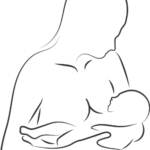Image credit to Motherly
What Causes Postpartum Insomnia It’s normal to feel a bit overtired right after giving birth. But apart from that amazing physical feat, your body has just pulled off, babies need care all day and night—which typically translates to no sleep for you. However, some women report fatigue that goes way beyond the norm and veers into sleeplessness. The inability to fall asleep or stay asleep right after giving birth is called postpartum insomnia.
Although not all new parents experience postpartum insomnia, several reasons range from lifestyle to hormonal changes. Besides, if it were to be left untreated, it could get really serious. On the other hand, as utterly exhausted one may feel right after giving birth, it’s ordinary; having bad cases of insomnia that make one unable to function may be dangerous.
What are some of the causes of postpartum insomnia?
It can also be caused by stress, irritable leg syndrome, and hormonal changes. Most parents experience hormonal changes regularly after the birth of a child. Your progesterone and estrogen levels fall dramatically following delivery. These hormones help regulate your body’s circadian rhythm, and normal sleep-wake cycle. If you have your circadian cycles out of balance, it might cause really different times of feeling awake and times of sleepiness during the day.
TIP end
This steep drop in estrogen also may contribute to the symptoms then experienced—including vasomotor symptoms such as night sweats and flashes that make it difficult to sleep. This is, in effect, a menopausal state—albeit a transient one—postpartum.
Taking on the overall stress of being responsible for a baby may lead to postpartum insomnia, particularly when predisposing risk factors are present. “Stress related to the care of a new baby and the role of [parent],” explains Margaret Mike, MD, University of Missouri Hospitals sleep medicine specialist, “can be a source of stress, along with financial constraints from an inability to work outside the home and the expenses involved in caring for a new baby.”
Additionally, restless leg syndrome may also haunt the postpartum parents. According to researchers, one of the reasons people, at times experience insomnia, is due to restless leg syndrome, an uncontrollable feeling one gets to move their legs while sleeping. Newlywed couples are prone to acquiring RLS since they are constantly tired hence worsening insomnia according to Dr. Mike.
How To Treat Postpartum Insomnia
However, before you rush to the doctor, there are several lifestyle changes that you can try and overcome postpartum insomnia. Some home remedies that would cure this ailment include napping with your baby, meditating regularly, following a routine strictly, avoiding caffeine, and hiring childcare. Yes, some of those below might be a bit difficult to implement while taking care of a newborn baby, but consider your health.
Sleep when the baby sleeps.
This has been the surefire cure for many a sleepless new parent, and it works just as well with postpartum insomnia. If you are able, catch your rest when you can. Even though it might be hard to do, make sure that you’re in an environment that’s going to make dozing off at exactly the same time that your child does easy. Find a dark, cozy spot to snuggle up and snooze.
Give meditation a go
Now, if your mind has been racing and you aren’t able to wind down, any type of cognitive behavioral therapy or meditation may be helpful. According to Lauren Demosthenes, MD, OB-GYN, senior medical director at Babyscripts, “cognitive behavioral therapy may help—and this may in turn help with sleep” for women experiencing postpartum depression. “Similarly, cognitive behavioral therapy, mindfulness, and relaxation techniques may all help with insomnia, which may also help with depression.”
Also Read : What To Do If Your Baby Falls Down
Stick to a schedule
Even if your little one is waking up at the most unconventional times, going to bed at approximately the same time every night will at least give your body a semblance of routine. The thing is, getting into a schedule with a new baby is easier said than done. There are two most important factors of good sleep hygiene: keeping constant sleep-wake cycles and creating a nice sleep environment that will help a person to fall asleep.
“Other tips about good sleep hygiene include avoiding electronics an hour or two before bed or having a cool and relaxing room,” said Dr. Demosthenes.
Get support
Whether it is your spouse, relative, or hired help, try as much as possible to recruit help for the baby. This is because chronic postpartum insomnia may quickly become quite serious since it can leave one so exhausted that taking good care of themselves and the child would be a challenge.
Discussion with your partner, and if possible, splitting of overnight duties, may also help in bringing down the nighttime wakings with the baby. You can also ask visiting family members for some babysitting time so you can catch a quick snooze. Or, if you are in a position to afford it, consider hiring a night nurse, postpartum doula, nanny, or babysitter to take on some of your daytime or evening tasks—even if just occasionally, until you are back to yourself.
Try to avoid caffeine
Strong coffee may tempt you to just push through all day, but it’s going to make matters worse in the long run. He also advises avoiding energy drinks altogether because these drinks build up in your system and can continue to fuel sleeplessness.
How Long Does Postpartum Insomnia Last?
Dr. Demosthenes does explain that there is a difference in time frame; however, postpartum insomnia usually end when the infant starts to sleep through the night. “Generally, postpartum insomnia may improve when an infant begins to sleep through the night and a new mom can have uninterrupted sleep).”.
If your postpartum sleeplessness doesn’t clear up once your baby starts sleeping through the night, you need to mention it to a doctor. You might have chronic insomnia. You really need to call your doctor because you need a proper amount of sleep for your physical and mental health, and by calling, you can begin to work together toward a treatment plan.
When to Seek a Health Care Provider
Recognizing the signs of your sleeplessness after delivery is very significant so that you know how and when to seek medical help. Not having the capacity to sleep can negatively affect your health aside from making you feel so tired.
“It’s time to seek medical attention when sleep issues are affecting daytime functioning, being able to stay awake to care for the baby, to drive, or if lack of sleep is causing anxiety and/or depression,” says Dr. Mike.
Cardiovascular issues, hypertension, diabetes, obesity, depression, and other conditions are generally associated with sleep disorders. Early treatment of insomnia will help retain these associated disorders in their tracks.










